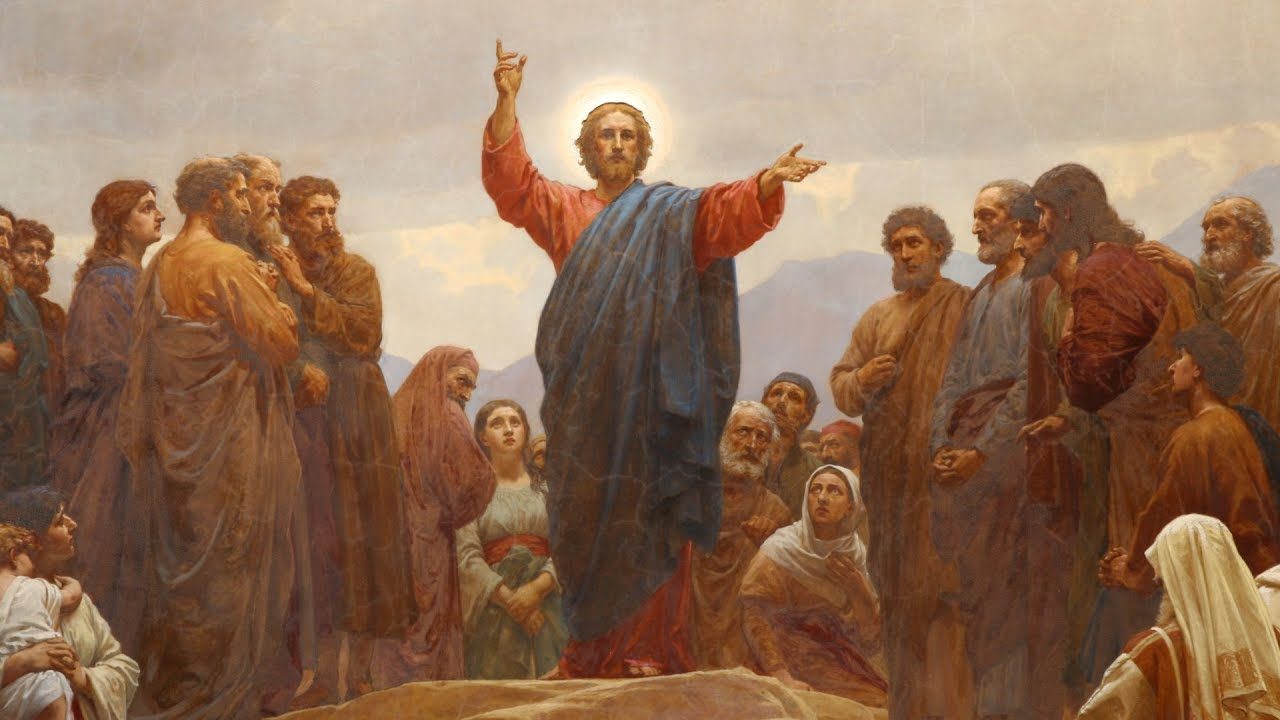Broken & Blessed
4th Sunday of Ordinary Time

What does it mean to be blessed? The Catechism defines blessing as “a prayer invoking God’s power and care upon some person, place, thing, or undertaking.” In other words, when you bless a person, you are saying, “I wish for God to grant you favor,” or, “I desire good things for you.” A blessing is the opposite of a curse. To curse someone is to desire them harm, whereas to bless them is to desire them good.
So what good things are we talking about? Most people naturally equate blessing with wealth, social status, good health, and prosperity. If a farmer has a good crop, he is blessed. If an investor sees a great return on his investment, he is blessed. If a person lives to old age in good health, he is blessed. Whatever ways we use to measure it, success in life is seen as a sign of God’s blessing upon that person.
This is what makes Jesus’ sermon on the mount, that we read in this Sunday’s gospel, so revolutionary. In light of what we naturally would consider being signs of God’s favor, imagine hearing these words for the first time:
Blessed are the poor in spirit…
Mt 5:3-11
Blessed are they who mourn…
Blessed are the meek…
Blessed are they who hunger and thirst for righteousness…
Blessed are the merciful…
Blessed are the clean of heart…
Blessed are the peacemakers…
Blessed are they who are persecuted…
Blessed are you when they insult and persecute you and utter every kind of evil against you falsely because of me…
Instead of considering the rich, strong and healthy to be blessed, Jesus calls blessed those who are poor, meek and hungry. He even calls blessed those who are insulted and persecuted and falsely accused. But how can this be? Who enduring that sort of trial would consider themselves as being favored by God How are we to understand the lesson of Beatitudes (which is what we call this teaching from Christ’s sermon on the mount)?
With this radical new way of thinking of what it means to be blessed, Jesus is expanding our vision and inviting us to look beyond this world. Blessed are they who mourn, he says, for they will be comforted. Blessed are the meek, for they will inherit the land. Blessed are those who hunger and thirst for righteousness, for they will be satisfied. Hunger comes from wanting. The good things we don’t have now, Jesus promises we will have in abundance in the world to come.
Once we begin to look beyond this world to the next, we realize that true blessing could never be found in the things of this world, however good they may be. No matter the wealth, health, or social status we might have in this life, we leave it all behind when we die. And then what good does it do us? In fact, if we allowed these so-called blessings to distract us from God during our time on earth, they will have served us as curses, because they will have done us harm.
This is why Jesus tells us not to store up treasure on earth that will pass away, but to store up treasure in heaven that will endure (cf. Mt 6:19-20). The Beatitudes show us how to do that: be merciful, be pure of heart, be a peacemaker. To be merciful is to have compassion and patience with others and to be willing to forgive. To be pure of heart is to be sincere in our love of God and neighbor, to be people of integrity, without mixed motive. To be a peacemaker is to work for reconciliation, most especially reconciling people to God, who is the source of true peace.
If you do these things, Jesus says, you will be blessed. You won’t be rich and famous, or even well-liked. What you can expect, in fact, is persecution and insults (and perhaps worse). To follow Jesus means taking up one’s cross daily, after all (cf. Lk 9:23). Jesus doesn’t sugarcoat the demands of discipleship. No one considered Christ blessed on the day of Calvary.
But those who are willing to suffer for the sake of Christ and for the sake of all that is good, true and beautiful will “see God” and be “children of God,” which is why Jesus calls for such to “rejoice and be glad,” for the blessings that come from a life of meekness, mercy, love and compassion will be eternal.
None of this makes sense apart from the Resurrection. None of this makes sense apart from the hope of eternal life. But with the Resurrection and eternity in mind, nothing else makes sense.
Jesus is inviting us today to look beyond the limits of this world and embrace a heavenly vision, where to be blessed we must be broken, like his body on the cross, and like the bread that becomes his body in the Eucharist. To embrace Christ’s brokenness for a while on earth is to share in his glory forever in heaven, which in the end is the greatest and only blessing.

